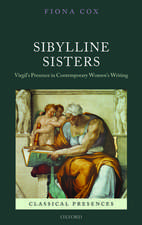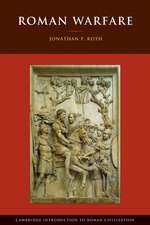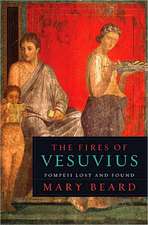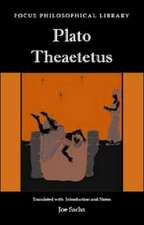Crito: Cambridge Elementary Classics: Greek
Autor Plato Editat de J. Adamen Limba Engleză Paperback – 29 feb 1920 – vârsta până la 19 ani
| Toate formatele și edițiile | Preț | Express |
|---|---|---|
| Paperback (7) | 43.72 lei 3-5 săpt. | |
| CREATESPACE – | 43.72 lei 3-5 săpt. | |
| CreateSpace Independent Publishing Platform – | 43.72 lei 3-5 săpt. | |
| CreateSpace Independent Publishing Platform – | 55.35 lei 3-5 săpt. | |
| Hackett Publishing Company – iun 1983 | 65.00 lei 3-5 săpt. | |
| Alpha Editions – 11 apr 2022 | 64.70 lei 6-8 săpt. | |
| Book Jungle – 3 iul 2008 | 74.78 lei 6-8 săpt. | |
| Cambridge University Press – 29 feb 1920 | 200.68 lei 6-8 săpt. |
Preț: 200.68 lei
Nou
Puncte Express: 301
Preț estimativ în valută:
38.40€ • 40.10$ • 31.71£
38.40€ • 40.10$ • 31.71£
Carte tipărită la comandă
Livrare economică 15-29 aprilie
Preluare comenzi: 021 569.72.76
Specificații
ISBN-13: 9780521059596
ISBN-10: 0521059593
Pagini: 128
Dimensiuni: 127 x 203 x 8 mm
Greutate: 0.15 kg
Editura: Cambridge University Press
Colecția Cambridge University Press
Seria Cambridge Elementary Classics: Greek
Locul publicării:Cambridge, United Kingdom
ISBN-10: 0521059593
Pagini: 128
Dimensiuni: 127 x 203 x 8 mm
Greutate: 0.15 kg
Editura: Cambridge University Press
Colecția Cambridge University Press
Seria Cambridge Elementary Classics: Greek
Locul publicării:Cambridge, United Kingdom
Cuprins
Prefaces; Introduction; Text; Notes; Appendix; Vocabulary; Index.
Descriere
J. Adam's edition of Plato's Crito presents the classic investigation of morality and justice in its original Greek.
Notă biografică
Plato (428/427 or 424/423 - 348/347 BC) was an Athenian philosopher during the Classical period in Ancient Greece, founder of the Platonist school of thought, and the Academy, the first institution of higher learning in the Western world. He is widely considered the pivotal figure in the history of Ancient Greek and Western philosophy, along with his teacher, Socrates, and his most famous student, Aristotle. Plato has also often been cited as one of the founders of Western religion and spirituality. The so-called Neoplatonism of philosophers like Plotinus and Porphyry influenced Saint Augustine and thus Christianity. Alfred North Whitehead once noted: "the safest general characterization of the European philosophical tradition is that it consists of a series of footnotes to Plato." Plato was the innovator of the written dialogue and dialectic forms in philosophy. Plato is also considered the founder of Western political philosophy. His most famous contribution is the theory of Forms known by pure reason, in which Plato presents a solution to the problem of universals known as Platonism (also ambiguously called either Platonic realism or Platonic idealism). He is also the namesake of Platonic love and the Platonic solids. His own most decisive philosophical influences are usually thought to have been along with Socrates, the pre-Socratics Pythagoras, Heraclitus and Parmenides, although few of his predecessors' works remain extant and much of what we know about these figures today derives from Plato himself. Unlike the work of nearly all of his contemporaries, Plato's entire body of work is believed to have survived intact for over 2,400 years. Although their popularity has fluctuated over the years, the works of Plato have never been without readers since the time they were written.

















